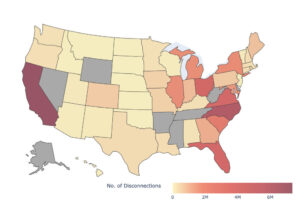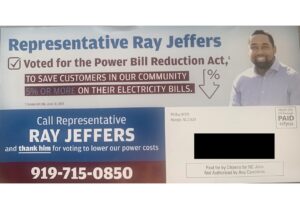Duke Energy seeks higher rates, profits in NC despite soaring disconnections
December 18, 2025
The Charlotte-based utility giant is asking state regulators for permission to boost the rates they charge customers and their profits, even as the state’s disconnection rate is rising and putting people’s lives at risk.




